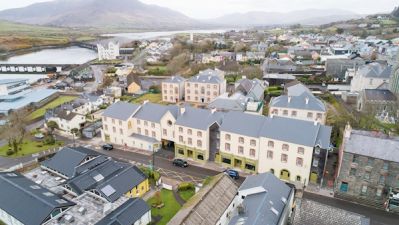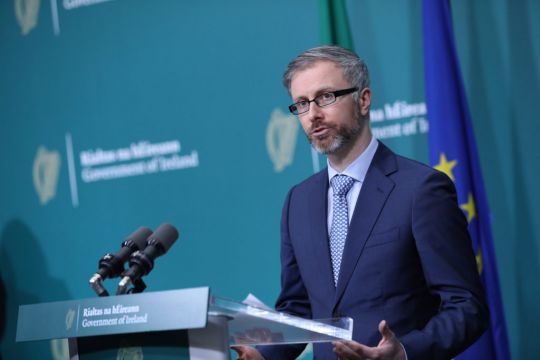On Friday, the Government published a White Paper, detailing their plan to end Direct Provision over the next four years.
After 21 years of the Direct Provision, here's what you need to know about the Government's plans to abolish the system...
What exactly is Direct Provision, and why is it being abolished?
Direct Provision is the system used to accommodate international protection applicants while their status to remain in Ireland is being considered.
Currently, premises such as hotels and hostels are being used as Direct Provision centres around the country and conditions in many centres have been found to be severely lacking in many instances.
Access to essential supports and services are also regarded as being below the standard required, while many international protection applicants have spent years in such centres, waiting for their application to remain in Ireland to be processed.
The Direct Provision system has been accused of breaching human rights and during the Covid-19 pandemic, the crowded nature of Direct Provision centres has raised concern for the safety and wellbeing of residents.
How did the White Paper come about?
In June of last year, Fianna Fáil, Fine Gael and the Green Party committed to ending Direct Provision in the lifetime of the Government in a draft deal between the parties.
An advisory group had already been established in October 2019 to determine how the international protection process could be improved, submitting their report to the Government last October.
They made a number of recommendations regarding issues such as the length of the application process and access to work/education, with their report ultimately informing the Government's White Paper.
What were the advisory group's main recommendations?
Among the main points put forward by the advisory group were:
- International protection applicants should be accommodated in State-owned reception centres and after three months they should be moved to 'own door' residences.
- Anyone in the process of applying for international protection status should be extended the right to work within three months of lodging their application.
- Children between 5-18 should be educated in mainstream schools, with additional language supports provided as necessary.
So, what is the Government planning to do?
Similar to what the advisory group recommended, international protection applicants will first be accommodated in State-owned reception centres for up to four months.
They will then be assigned 'not-for-profit' housing by an Approved Housing Body (AHB), with the advisory group emphasising the need for 'own down' accommodation, meaning an end to communal living for families.
Single people may be accommodated in 'rent-a-room' schemes, while private tenancies may also be used for some families where necessary.
Each applicant will also undergo a vulnerability assessment while in the reception centres, assessing what supports and services they may benefit from. They will receive information regarding employment, legal aid, education, childcare and health, in addition to being offered English language classes.
While in the reception centres, applicants will receive a 'bespoke allowance', while they will then be supported in seeking employment when they move to housing. Adults who do not find work will qualify for income similar to the supplementary welfare payment.
Why is the new system being called 'not for profit'?
Under the current system there are companies profiting from Direct Provision.

Direct Provision centres around the country are often premises such as hotels which the Government are paying for in order to accommodate international protection applicants, while private companies are also providing catering and security services.
By moving to a model where the State owns and operates reception centres, and the long-term housing is build without the goal of making a profit, it would mean private companies would not profit from the system.
What is this going to cost?
It has been estimated the cost of overhauling the International Protection process could stack up to €672 million, or €450 million if the Government finds lower-cost options.
However, the advisory group's report predicted the Government would actually save money in the long run by adopting the new system, as the current model is not fit-for-purpose and expensive to maintain.







